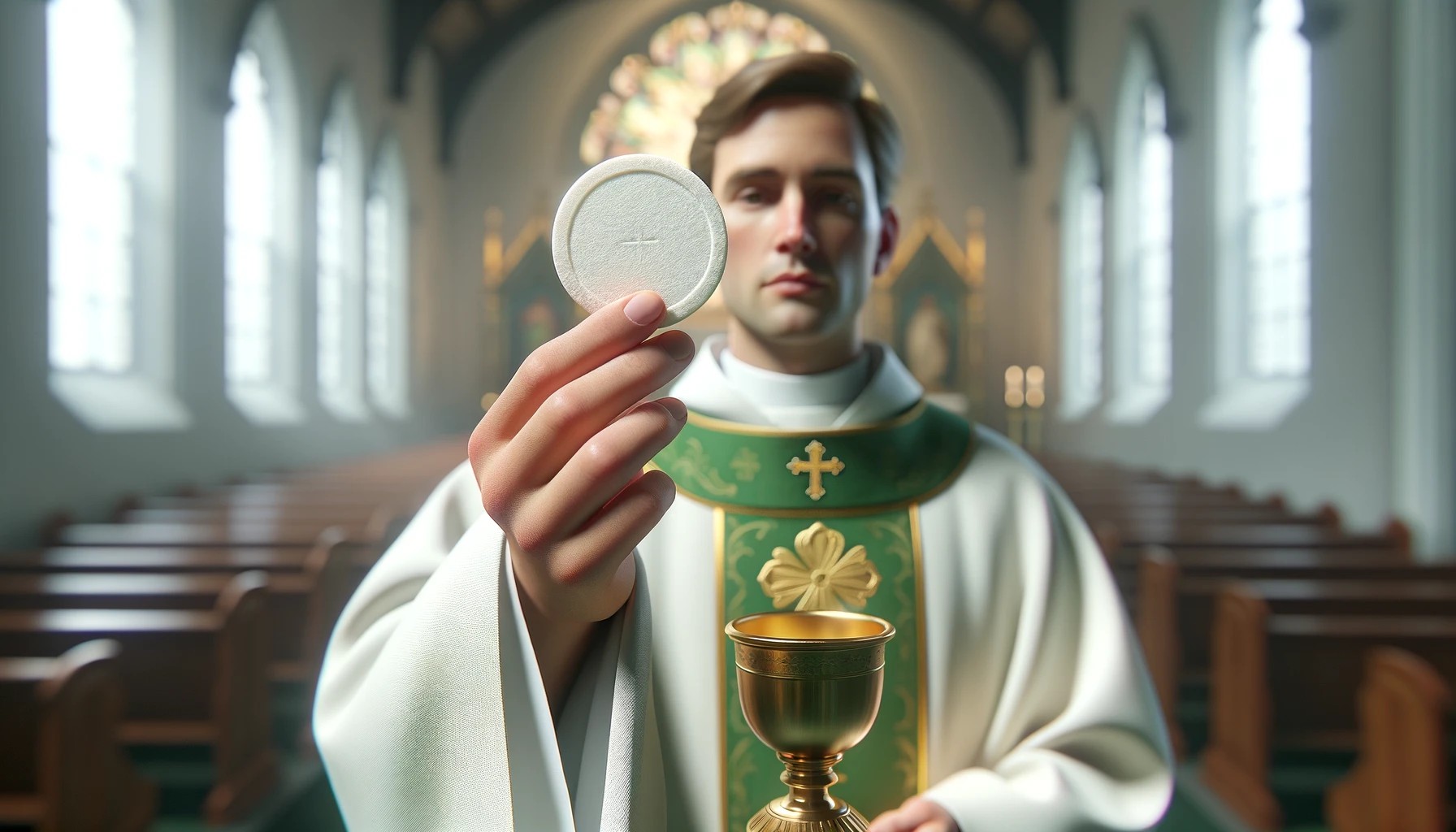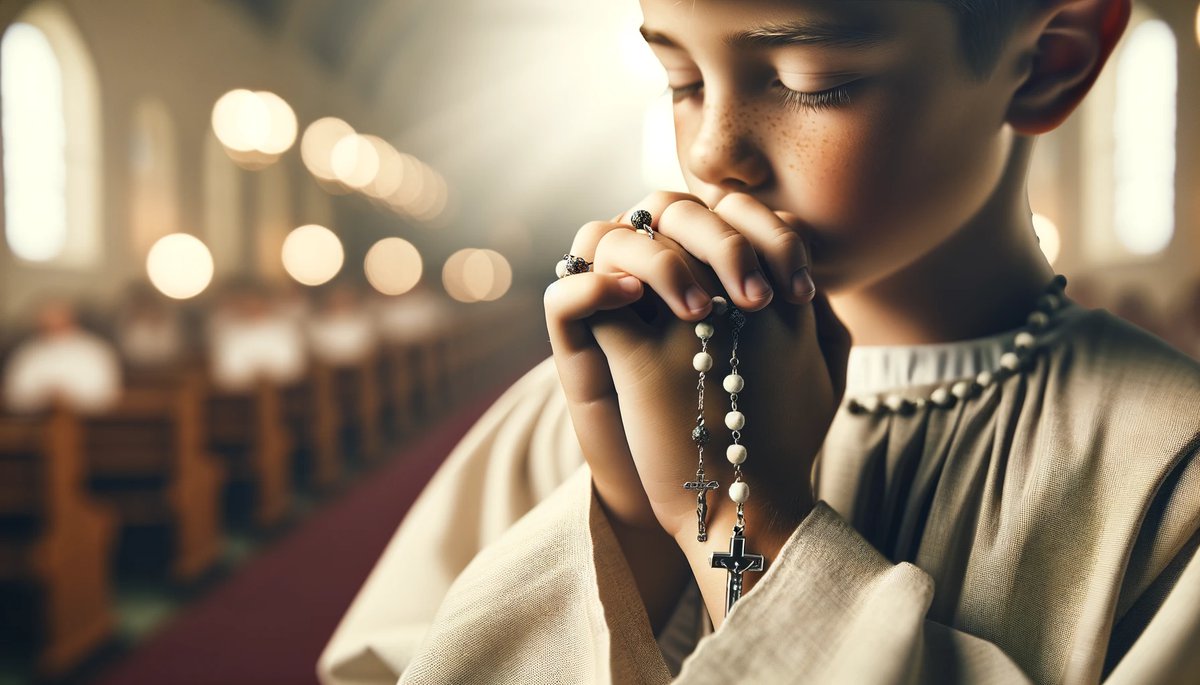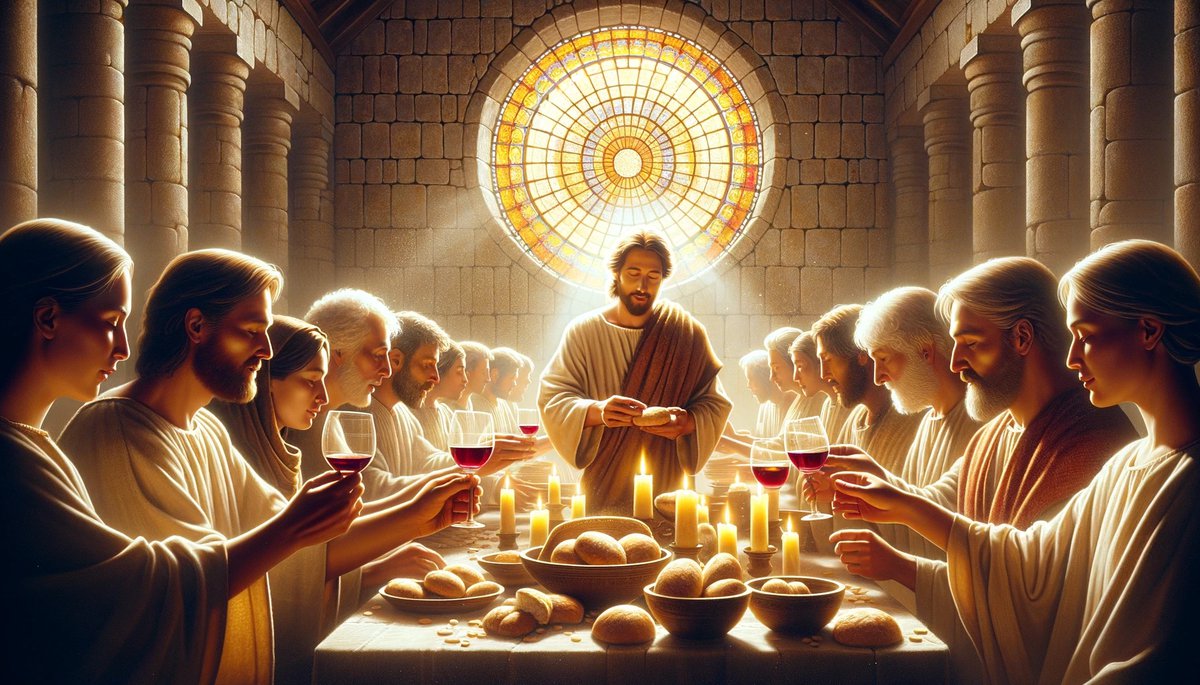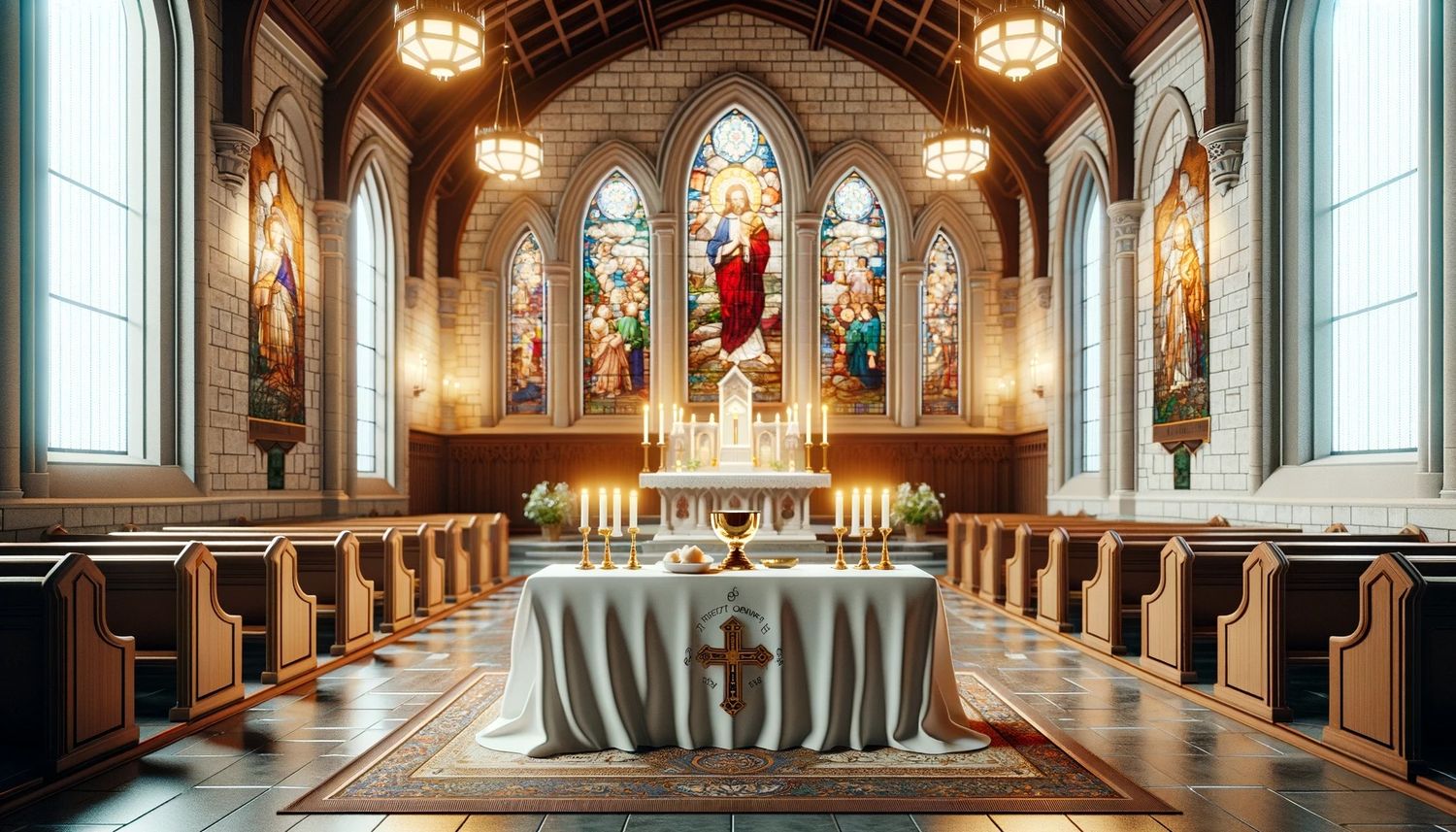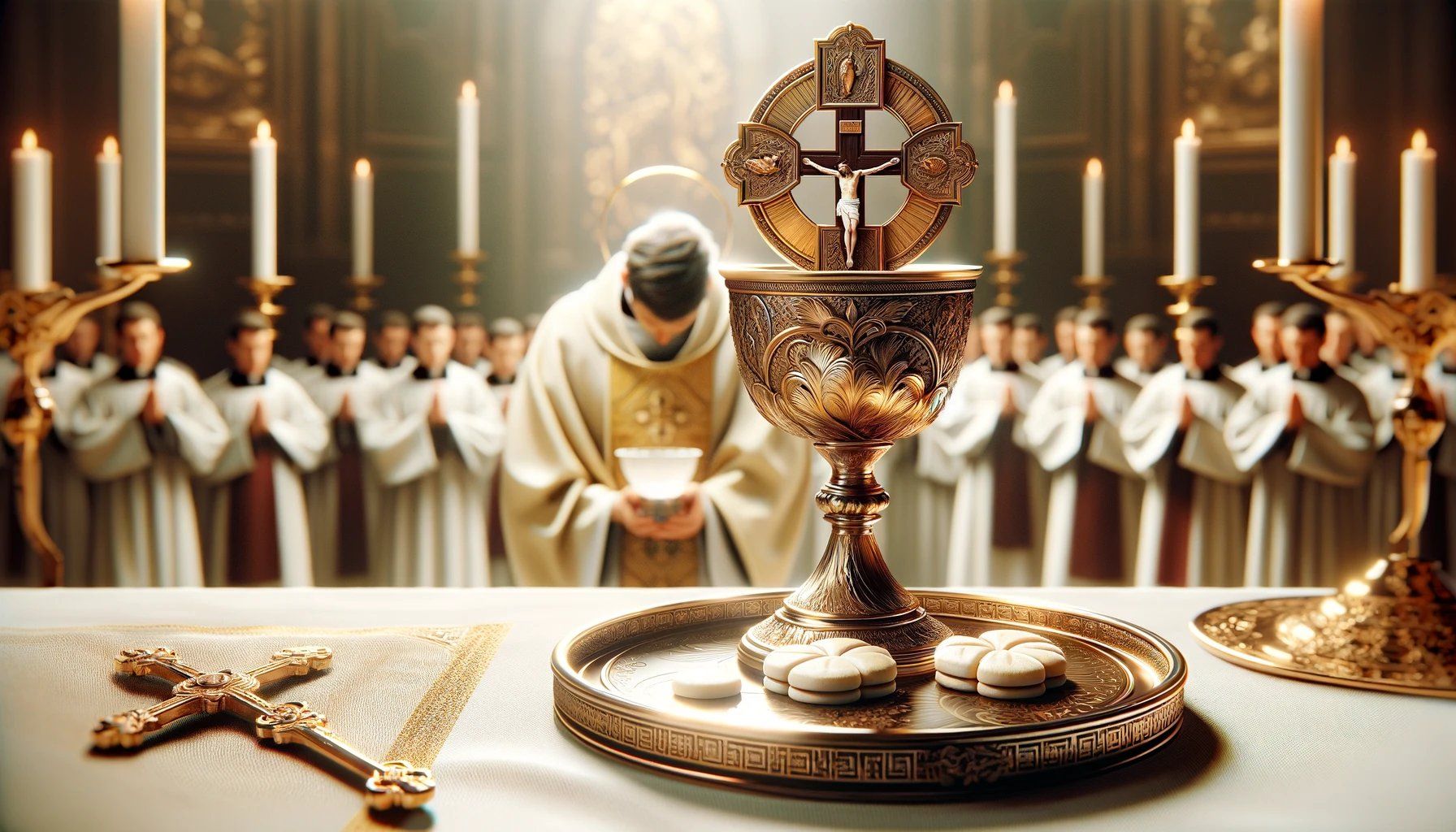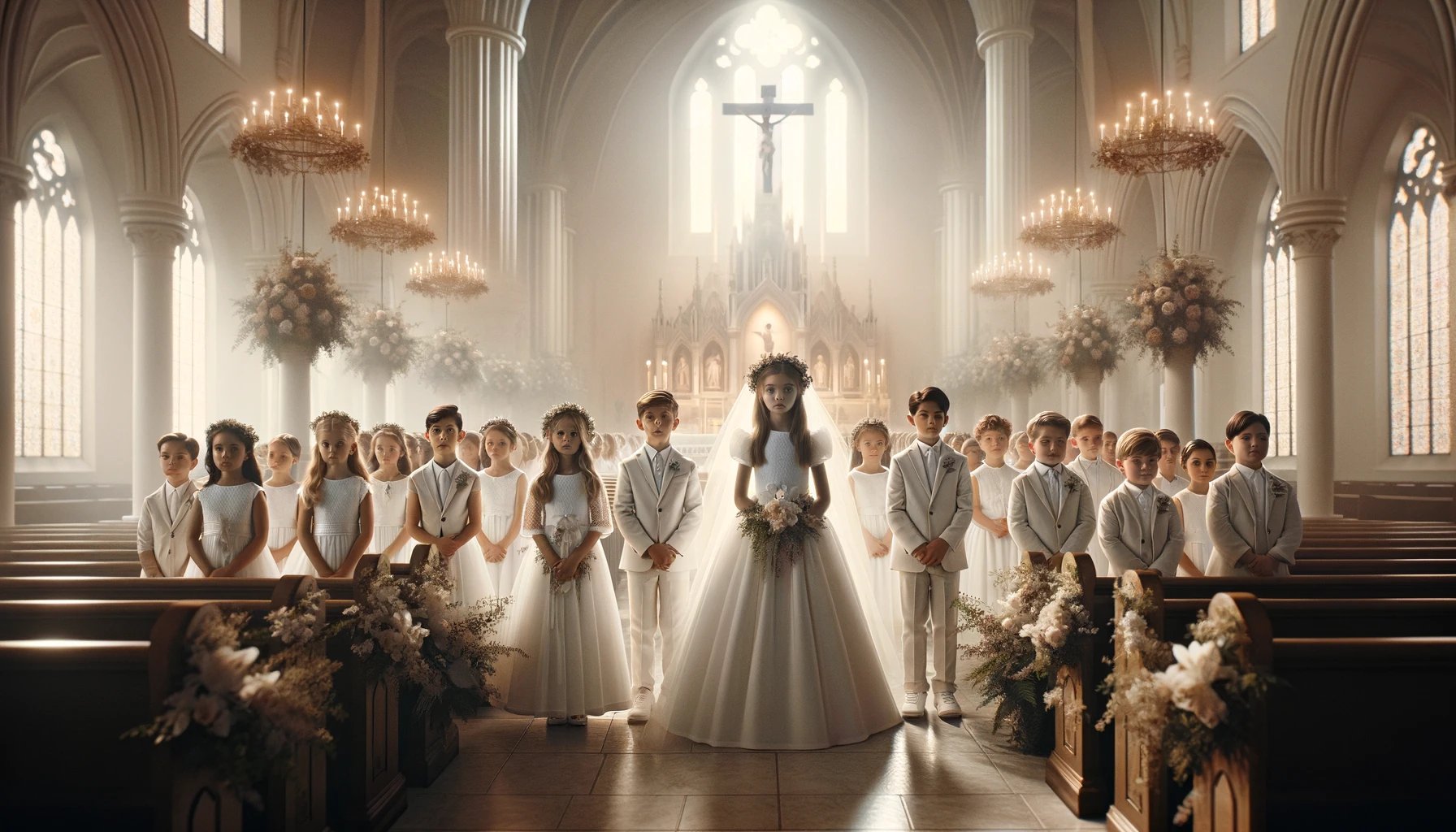Home>Theology and Spirituality>When Is First Communion In The Catholic Church


Theology and Spirituality
When Is First Communion In The Catholic Church
Published: February 24, 2024
Ericka Andersen, an editor at Christian.net, expertly merges digital strategy with content creation, focusing on faith and societal issues. Her communication skills enhance the platform's engaging narratives, fostering meaningful dialogue on belief's impact on society.
Discover the significance and timing of First Communion in the Catholic Church. Explore the theology and spirituality behind this important sacrament.
(Many of the links in this article redirect to a specific reviewed product. Your purchase of these products through affiliate links helps to generate commission for Christian.net, at no extra cost. Learn more)
Table of Contents
Introduction
First Communion is a significant and cherished milestone in the Catholic Church, marking a pivotal moment in a child's spiritual journey. It is a sacred sacrament that holds deep meaning and symbolism within the Catholic faith, signifying the reception of the Eucharist for the first time. This sacred event is steeped in tradition and is a cause for celebration and reflection within the Catholic community.
The First Communion ceremony is a momentous occasion that is eagerly anticipated by both the child and their family. It represents a profound step in the child's initiation into the Eucharistic community, where they partake in the body and blood of Christ, as symbolized by the bread and wine. This act of receiving the Eucharist is a central tenet of the Catholic faith, and the First Communion ceremony serves as a rite of passage that is deeply ingrained in the spiritual fabric of the Church.
The significance of First Communion extends beyond the individual child and resonates within the broader Catholic community. It is a time of joy and reverence, as families and congregations come together to witness and support the young communicant as they take this momentous step in their faith journey. The ceremony is a testament to the communal nature of the Catholic faith, emphasizing the importance of unity and shared spiritual experiences within the Church.
As we delve deeper into the intricacies of First Communion, it becomes evident that this sacred sacrament holds a special place in the hearts of Catholics around the world. It is a time of profound spiritual significance, representing the beginning of a lifelong relationship with the Eucharist and the teachings of Christ. The journey towards First Communion is filled with anticipation, preparation, and a deep sense of reverence, culminating in a ceremony that is both solemn and celebratory.
In the subsequent sections, we will explore the age at which children typically receive their First Communion, the preparations involved, the ceremony itself, and the traditions that surround this sacred sacrament. Through this exploration, we will gain a deeper understanding of the profound impact of First Communion within the Catholic Church and the enduring significance it holds for individuals and communities alike.
Significance of First Communion in the Catholic Church
First Communion holds immense significance within the Catholic Church, symbolizing a pivotal moment in a child's spiritual journey. At its core, First Communion represents the reception of the Eucharist for the first time, marking the beginning of a deeper connection to the body and blood of Christ. This sacred sacrament is deeply rooted in the teachings of Jesus Christ, who, during the Last Supper, shared bread and wine with his disciples, instructing them to partake in remembrance of him.
The act of receiving the Eucharist during First Communion is a profound expression of faith and devotion. It signifies the communicant's readiness to participate in the central ritual of the Catholic faith, where the bread and wine are transformed into the body and blood of Christ through the process of transubstantiation. This act of partaking in the Eucharist is a fundamental aspect of Catholic worship, representing the spiritual nourishment and unity of the faithful with Christ and one another.
Moreover, First Communion serves as a foundational step in the child's initiation into the Eucharistic community. It marks the beginning of their active participation in the life of the Church, fostering a sense of belonging and spiritual responsibility. Through this sacrament, children are encouraged to deepen their understanding of the teachings of Jesus and embrace the values of compassion, love, and service to others, as exemplified in the life and ministry of Christ.
The significance of First Communion extends beyond the individual communicant and resonates within the broader Catholic community. It is a time of celebration and reflection, as families, friends, and the parish community come together to witness and support the young participants. The ceremony serves as a testament to the communal nature of the Catholic faith, emphasizing the importance of shared spiritual experiences and the nurturing of faith within the community.
In essence, First Communion holds profound significance within the Catholic Church, representing a sacred moment of spiritual initiation and unity with Christ and the faith community. It is a time of joy, reverence, and spiritual growth, marking the beginning of a lifelong journey of faith and devotion to the teachings of Jesus Christ.
Age for First Communion
In the Catholic Church, the age at which children receive their First Communion is a topic of both tradition and theological consideration. While there is no set age mandated by the Church, the typical age for First Communion falls within the range of 7 to 8 years old. This age range is significant as it aligns with the developmental stage at which children are deemed capable of understanding the significance of the Eucharist and actively participating in the sacramental life of the Church.
The age for First Communion is often determined by the individual dioceses or parishes, taking into account the readiness and preparedness of the children. It is a time when children have typically reached an age of reason, allowing them to comprehend the basic teachings of the faith and the significance of receiving the body and blood of Christ in the form of bread and wine. This developmental stage is crucial as it marks a child's ability to discern right from wrong and understand the spiritual implications of their actions.
The decision regarding the age for First Communion is guided by the belief that children at this stage are capable of forming a personal relationship with Jesus Christ through the Eucharist. It is a time when they can begin to grasp the concept of the real presence of Christ in the Eucharist and the profound spiritual nourishment it offers to the faithful. Additionally, this age range allows children to engage in catechetical instruction and spiritual formation, preparing them to receive the sacrament with reverence and understanding.
Furthermore, the age for First Communion is deeply rooted in the historical and cultural traditions of the Church. It reflects the longstanding practice of welcoming children into the full participation of the Eucharistic celebration, emphasizing the importance of nurturing their faith from a young age. This age range also aligns with the ancient tradition of the Church, where children, after reaching the age of reason, are encouraged to partake in the sacramental life of the community.
In essence, the age for First Communion holds both practical and theological significance within the Catholic Church. It represents a pivotal stage in a child's spiritual journey, marking their readiness to partake in the Eucharistic celebration and embrace the teachings of Jesus Christ. This age range underscores the Church's commitment to nurturing the faith of its youngest members and guiding them towards a deeper understanding of the sacraments and the life of Christian discipleship.
Preparation for First Communion
Preparation for First Communion is a multifaceted and comprehensive process that encompasses spiritual, educational, and communal elements. It is a time of formation and instruction designed to equip children with the knowledge, understanding, and reverence necessary to receive the Eucharist for the first time. The preparation period typically spans several months, during which children engage in a variety of activities and experiences aimed at nurturing their faith and deepening their connection to the teachings of the Catholic Church.
At the heart of the preparation process is catechesis, which involves religious instruction and formation. Children participate in catechism classes where they learn about the significance of the Eucharist, the life and teachings of Jesus Christ, and the meaning of the sacraments. Through engaging and age-appropriate lessons, they gain a deeper understanding of the rituals and traditions surrounding First Communion, as well as the spiritual significance of receiving the body and blood of Christ.
In addition to formal instruction, children are encouraged to engage in prayer and reflection as part of their preparation. They learn about the importance of prayer in nurturing their relationship with God and are guided in developing a personal prayer practice. This spiritual aspect of preparation instills in them a sense of reverence and devotion as they anticipate receiving the Eucharist.
Furthermore, the preparation for First Communion often includes participation in communal activities within the parish community. Children may take part in service projects, outreach initiatives, or charitable endeavors, allowing them to embody the values of compassion and service exemplified in the life of Jesus. These experiences foster a sense of community and solidarity, emphasizing the importance of living out the teachings of the faith in practical ways.
As the date of the First Communion ceremony approaches, children and their families may also engage in special rituals and traditions that mark this significant milestone. This may include attending a retreat, receiving the sacrament of reconciliation (confession), and participating in a rehearsal for the ceremony. These preparatory activities serve to deepen the children's spiritual readiness and ensure that they approach the sacrament with reverence and understanding.
Overall, the preparation for First Communion is a holistic and formative process that seeks to instill in children a deep appreciation for the Eucharist and the teachings of the Catholic Church. It is a time of learning, reflection, and spiritual growth, laying the foundation for a lifelong journey of faith and discipleship. Through comprehensive preparation, children are equipped to approach the First Communion ceremony with reverence, joy, and a profound sense of spiritual readiness.
Ceremony and Traditions
The First Communion ceremony in the Catholic Church is a deeply significant and cherished event, steeped in rich traditions and symbolic rituals that reflect the spiritual importance of this sacramental milestone. The ceremony itself is a culmination of the preparatory journey that children undertake as they eagerly anticipate receiving the Eucharist for the first time. It is a time of reverence, joy, and communal celebration, bringing together families, friends, and the parish community in a spirit of unity and faith.
The First Communion ceremony is typically held within the context of a Mass, the central act of worship in the Catholic tradition. The communicants, dressed in their finest attire, gather with their families and the congregation to partake in this sacred celebration. The ceremony often begins with a procession, where the children, accompanied by their parents and sometimes their godparents, make their way to the altar, symbolizing their readiness to receive the Eucharist.
During the Mass, the children actively participate in the liturgy, taking on special roles such as bringing forward the gifts of bread and wine, serving as altar servers, or participating in readings or prayers. These active roles allow the communicants to engage more deeply in the sacramental experience, reinforcing their sense of belonging and participation in the life of the Church.
The pinnacle of the First Communion ceremony is the moment when the children receive the Eucharist for the first time. With reverence and awe, they approach the altar to partake in the body and blood of Christ, symbolized by the consecrated bread and wine. This act of receiving the Eucharist is a profound expression of faith and unity, marking the beginning of a deeper connection to the teachings of Jesus Christ and the spiritual nourishment offered through the sacrament.
In addition to the sacred rituals of the Mass, the First Communion ceremony is accompanied by a variety of traditions that vary across different cultures and regions. These traditions may include the presentation of gifts to the communicants, such as religious medals, rosaries, or prayer books, symbolizing their continued journey of faith. Families often commemorate the occasion with photographs and gatherings, further emphasizing the joy and significance of this milestone.
The ceremony and traditions surrounding First Communion serve to underscore the communal nature of the Catholic faith, emphasizing the importance of shared spiritual experiences and the nurturing of faith within the community. It is a time of profound significance, where the children are welcomed into a deeper participation in the life of the Church, surrounded by the love and support of their families and the faith community.
In essence, the First Communion ceremony and its accompanying traditions are a testament to the enduring significance of this sacramental milestone within the Catholic Church. It is a time of reverence, joy, and communal celebration, marking the beginning of a lifelong journey of faith and spiritual growth for the young communicants.
After First Communion
After the First Communion ceremony, children enter a new phase in their spiritual journey within the Catholic Church. This pivotal milestone marks the beginning of a deeper engagement with the Eucharist and a continued exploration of their faith. The period following First Communion is characterized by ongoing spiritual growth, nurturing of the communicants' relationship with Christ, and their integration into the life of the faith community.
In the aftermath of receiving the Eucharist for the first time, children are encouraged to cultivate a regular practice of attending Mass and actively participating in the liturgical life of the Church. This involvement allows them to deepen their understanding of the Eucharist and its centrality to the Catholic faith. Through regular participation in Mass, communicants continue to partake in the body and blood of Christ, strengthening their spiritual connection to the teachings of Jesus and the faith community.
Furthermore, the period after First Communion is a time for ongoing religious education and formation. Children engage in continued catechesis, where they delve deeper into the teachings of the Church, the lives of the saints, and the moral and ethical principles of the Catholic faith. This educational journey equips them with the knowledge and understanding necessary to navigate the complexities of the modern world while upholding the values and teachings of the Catholic Church.
In addition to religious education, children are encouraged to embrace a life of prayer and reflection. They are guided in developing a personal prayer routine, fostering a deeper relationship with God and a sense of spiritual discipline. Through prayer, communicants seek guidance, express gratitude, and reflect on their faith journey, nurturing a sense of spiritual awareness and connection to the divine.
The period after First Communion also presents opportunities for children to engage in acts of service and charity within their parish community. They are encouraged to embody the values of compassion, kindness, and generosity, mirroring the teachings of Jesus Christ. By participating in outreach initiatives, volunteer work, and charitable endeavors, communicants actively live out the principles of love and service, contributing to the well-being of their community and fostering a spirit of empathy and solidarity.
In essence, the period following First Communion is a time of continued spiritual development, active engagement with the teachings of the Catholic Church, and integration into the life of the faith community. It marks the beginning of a lifelong journey of faith, service, and discipleship, as children embrace the values of the Eucharist and strive to embody the teachings of Jesus Christ in their daily lives.
